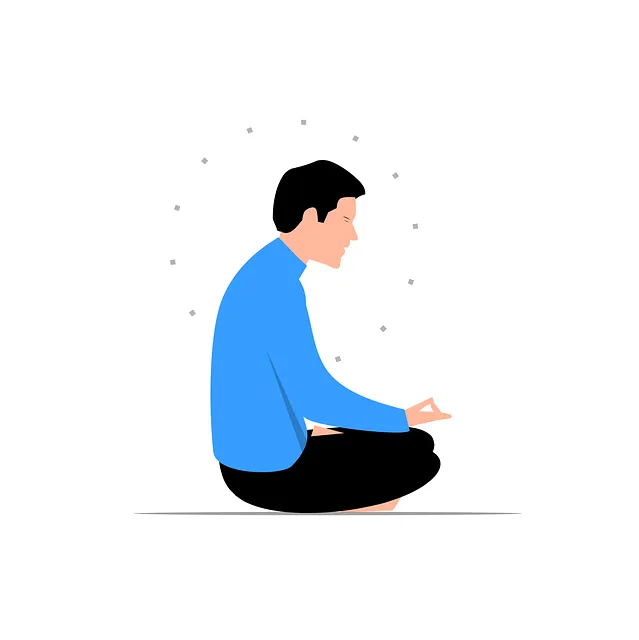Greenwood Village residents demand mental health app development to combat burnout and stress, with Kaiser Permanente leading the way as a healthcare innovator. These apps promote resilience, prevent burnout, and offer accessible tools for emotional well-being management, fostering community through open conversations about mental health. Kaiser Permanente's comprehensive approach includes direct services, partnerships, and technology leverage, advocating for mental health policy changes. Effective apps prioritize user privacy, data security, cultural sensitivity, and burnout prevention strategies for healthcare providers, with user research guiding design and features like mindfulness exercises and mood tracking. Partnering with giants like Kaiser Permanente in Greenwood Village allows app developers to target specific demographics and potentially revolutionize mental wellness access.
“Uncovering the Potential of Mental Wellness Apps: A Comprehensive Guide explores the growing importance of digital solutions in addressing mental health concerns. With a focus on the unique needs of communities like Greenwood Village, we examine how organizations like Kaiser Permanente are pioneering innovative apps. This article delves into key features, development strategies, and marketing approaches, showcasing how user-centric apps can make a significant impact on mental wellness, not just within Kaiser Permanente but for users nationwide.”
- Understanding Mental Health App Needs: A Greenwood Village Perspective
- Kaiser Permanente's Role in Mental Wellness Innovation
- Key Features for Effective Mental Health Apps
- Development Process: Building User-Centric Solutions
- Marketing and Impact: Reaching Users at Kaiser Permanente and Beyond
Understanding Mental Health App Needs: A Greenwood Village Perspective

In Greenwood Village, the need for mental health app development is starkly highlighted by the prevalence of issues like burnout and stress among residents. Many are seeking innovative solutions to improve their emotional well-being, as supported by healthcare giants like Kaiser Permanente. These apps play a crucial role in promoting resilience building and burnout prevention techniques, addressing the growing demand for accessible mental wellness tools.
Greenwood Village’ unique demographic and lifestyle factors necessitate tailored mental health support. By focusing on both individual and community levels, these apps can foster a sense of belonging and encourage open conversations about emotional well-being. Incorporating features like mindfulness exercises, mood tracking, and personalized recommendations for self-care activities can significantly contribute to the overall mental wellness of residents, making their daily lives more manageable and fulfilling.
Kaiser Permanente's Role in Mental Wellness Innovation

Kaiser Permanente, a renowned healthcare organization, has been at the forefront of mental wellness innovation in the United States, particularly through its location in Greenwood Village. Their commitment to advancing mental health care is evident in various initiatives that cater to diverse communities. The organization’s approach involves not only providing direct services but also fostering partnerships and leveraging technology for accessible and effective support.
One notable aspect of Kaiser Permanente’s role is their focus on resilience-building programs, aiming to equip individuals with tools to navigate life’s challenges. They offer comprehensive resources for emotional regulation, recognizing its significance in overall well-being. Beyond individual care, Kaiser Permanente actively engages in mental health policy analysis and advocacy, driving systemic changes. This dual approach—providing direct care and shaping policy—positions them as a key player in the industry, contributing to a more holistic understanding and improved access to mental wellness solutions.
Key Features for Effective Mental Health Apps

Effective mental health apps, such as those offered by Kaiser Permanente mental health Greenwood Village, should incorporate several key features to optimize their impact. First and foremost, these apps must prioritize user privacy and data security, ensuring that sensitive information is protected in compliance with healthcare standards. Customizable content and adaptive algorithms are also essential; the app should be able to tailor its offerings based on individual needs and preferences, providing personalized support for various mental health conditions.
Incorporating features like mindfulness exercises, guided meditations, and mood tracking tools can help users manage stress, anxiety, and other common mental health challenges. Additionally, integrating cultural sensitivity in mental healthcare practice is crucial to ensuring that the app resonates with a diverse user base. Incorporating burnout prevention strategies for healthcare providers can also be beneficial, promoting self-care within a feature dedicated to supporting mental wellness practitioners themselves.
Development Process: Building User-Centric Solutions

When developing a mental wellness app like those aimed at improving Kaiser Permanente mental health in Greenwood Village, putting users at the heart of the process is paramount. This involves understanding their specific needs and challenges related to mental well-being. Research should include surveys, interviews, and focus groups with potential users to gather insights on their desired features, preferred interaction styles, and the types of support they seek. Incorporating user feedback from these interactions ensures that the app is tailored to address genuine concerns, whether it’s managing stress, improving self-esteem, or learning conflict resolution techniques.
A user-centric approach also demands designing intuitive interfaces that promote engagement without overwhelming users. Incorporate features that boost confidence through achievable goals and progress tracking while subtly encouraging practices like mindfulness exercises or positive affirmations. By prioritizing user experience and incorporating evidence-based strategies for mental health improvement, such as self-esteem improvement and confidence boosting techniques, developers can create an app that becomes a valuable tool in the journey toward better mental wellness, reflecting the commitment of organizations like Kaiser Permanente to holistic care.
Marketing and Impact: Reaching Users at Kaiser Permanente and Beyond

Reaching users at Kaiser Permanente and beyond is a pivotal step for any mental wellness app aiming to make a significant impact. By partnering with healthcare giants like Kaiser Permanente in Greenwood Village, app developers can tap into established networks and gain trust among those seeking mental health support. This strategic move allows for targeted marketing and awareness campaigns, ensuring the app reaches individuals who could greatly benefit from its offerings.
For example, developing an app focused on coping skills and burnout prevention could be tailored to cater to the specific needs of Kaiser Permanente’s diverse patient population. Through collaboration, the app can be promoted within the organization, integrated into their existing mental health services, and even offered as a supplemental resource for employees, potentially revolutionizing access to mental wellness coaching programs.
The development of mental wellness apps, as evidenced by Kaiser Permanente’s initiatives in Greenwood Village, offers a promising approach to addressing the growing need for accessible mental healthcare. By focusing on user-centric design and incorporating essential features, these apps can significantly impact individuals’ well-being. The marketing strategies employed by Kaiser Permanente highlight the potential to reach a wide audience, ensuring that mental health support becomes more readily available in today’s digital landscape. This article has provided valuable insights into the key considerations for creating effective mental health apps, contributing to a crucial shift towards enhancing mental wellness on a broader scale.






